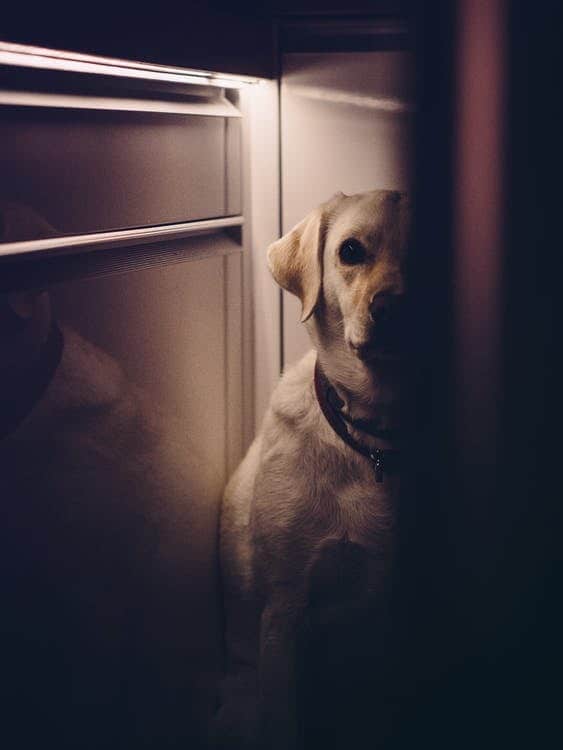Boom! Boom! Boom! Gazing up at the bursting kaleidoscope of colors blazing through the night sky is something most of us look forward to during the Fourth of July. On the other hand, our pets may not share in our excitement. Their explosive sound can strike terror in some pets sending them running the opposite direction with their tails between their legs to hide.

Fear can be a normal response that keeps one safe in certain situations. But it is not healthy for a pet to live in fear of a noise that is truly not dangerous or life-threatening. When there is a sound in the environment that causes this fearful or anxious response it is called noise aversion.
About half of all dogs in their lifetime will show signs of noise aversion and fireworks are not the only culprit. Other noises can also stimulate this type of reaction in pets such as gunshots, thunderstorms, construction work, the vacuum, etc. Recognizing this condition in your pet is important as it affects their quality of life and can progressively worsen over time.
Is your pet trembling, panting, drooling, vocalizing, or trying to hide from or escape a noise? Then try these tips below to soothe their anxiety. If you can, get ahead of the game! If you know when the noise is going to occur, start taking action about 30-60 minutes before the stress response starts. This may increase your success with calming your pet.
5 Tips to Calm Firework Anxiety or other noise aversions:
Move your pet to its safe zone. This is an area your pet goes to feel secure and where the noise is not as loud.
- Try a Thundershirt or other anxiety wrap. If your pet responds positively to touch and pressure, these can act as a continuous hug to help your pet feel more secure.
- Use a calming natural pheromone such as Adaptil for dogs or Feliway for cats.
- Lavender scents have been shown to reduce stress. It is available in sprays and diffusers and can be mixed with other natural soothers like chamomile and pheromones.
- Playing some calming, soothing music made for cats and dogs can lessen the intensity of the noise and help them relax.
Some noise aversions may be strong enough that you need to seek help from your veterinarian. There are medications that can be prescribed to help decrease their anxiety. It usually takes a combination of environmental adjustments, behavior modification training, and medications to manage noise aversion. Not every pet will respond to the same treatment, so be prepared to work closely with your veterinarian to tailor a treatment plan that works best for you and your pet.
Whether you gather along the Missouri riverfront in Kansas City or steal a peak from your own front porch to catch a glorious fireworks display this year, may you and your pets celebrate a calmer Independence Day. Let freedom ring!
By: Christina Fischer, DVM


